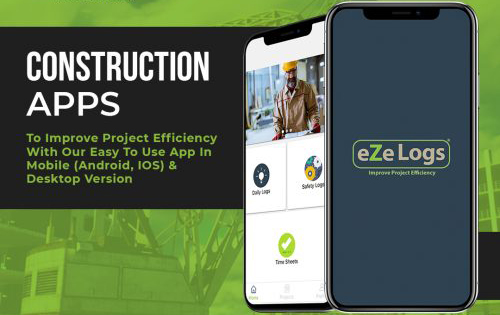In the competitive landscape of the construction industry, securing projects often hinges on the effectiveness of your bid management process. Bidding for construction projects is not just about offering the lowest price; it involves a strategic approach that balances cost, value, and the ability to deliver on time.

Mastering bid management can mean the difference between winning a contract and losing it to a competitor. Here’s a look at some best practices that can enhance your chances of success in bid management.
Understanding the Client’s Needs
Before you even start preparing a bid, it’s crucial to thoroughly understand the client’s requirements and expectations. This involves carefully reviewing the request for proposal (RFP) or invitation to bid (ITB) documents. These documents typically outline the scope of work, project timelines, budget constraints, and specific technical requirements. By paying close attention to these details, you can tailor your bid to address the client’s key concerns.
Engaging with the client early on is another effective strategy. If possible, attend pre-bid meetings or site visits to gather additional information and ask clarifying questions. This not only helps in understanding the project better but also demonstrates your interest and commitment to the project. Clients are more likely to favor contractors who show a proactive approach and a genuine understanding of their needs.
Accurate Cost Estimating
Accurate cost estimating is at the heart of successful bid management. Underestimating costs can lead to financial losses, while overestimating can make your bid less competitive. To achieve accuracy, it’s essential to use reliable data and take into account all potential expenses, including materials, labor, equipment, and overheads.
Utilizing advanced estimating software can help streamline this process. These tools allow you to create detailed cost estimates by drawing on historical data and current market prices. They also enable you to adjust estimates quickly if there are changes in the project scope or market conditions. Consistently accurate estimates not only improve your chances of winning bids but also help in maintaining profitability once the project is underway.
Strategic Pricing
While competitive pricing is important, it’s not always about being the lowest bidder. Clients often look for the best value, which includes factors like quality of work, project management capabilities, and the ability to meet deadlines. When determining your bid price, consider the total value you can offer to the client. Highlight any unique advantages your company brings to the table, such as specialized expertise, innovative construction methods, or a strong track record of delivering similar projects.
It’s also important to factor in contingencies for unexpected costs. Construction projects are notorious for encountering unforeseen challenges, whether due to weather, material shortages, or design changes. By including a contingency plan in your bid, you not only protect your profit margins but also show the client that you are prepared to handle potential issues without compromising on quality or timelines.
Detailed and Clear Bid Documentation
The presentation of your bid is just as important as the numbers themselves. A well-organized, detailed, and clear bid document can set you apart from competitors. It should include all necessary sections, such as an executive summary, project understanding, scope of work, cost breakdown, timeline, and any other requested documentation.
Use the executive summary to briefly highlight why your company is the best choice for the project. This is your opportunity to make a strong first impression, so focus on your unique selling points and how they align with the client’s needs.
The scope of work should be clearly defined, outlining exactly what is included in your bid and what is not. This transparency helps avoid misunderstandings later in the project and ensures that both parties have a clear understanding of expectations.
Leveraging Technology in Bid Management
Technology plays a pivotal role in modern bid management. Bid management software can help you track and manage multiple bids simultaneously, ensuring that deadlines are met and all necessary documents are submitted. These tools often include features like bid comparisons, automated notifications, and collaboration platforms that streamline communication among team members.
Moreover, digital platforms can facilitate the submission of bids, making the process more efficient and reducing the chances of errors. Many clients now prefer or even require electronic submissions, so being adept with these platforms is essential.
Another advantage of using technology is the ability to analyze past bids and identify patterns of success or failure. By reviewing historical data, you can refine your bidding strategy, learn from previous mistakes, and make data-driven decisions that improve your chances of winning future projects.
Building Strong Relationships with Clients and Subcontractors
Strong relationships are invaluable in the construction industry. Clients are more likely to award projects to contractors they know and trust. Therefore, investing time in building and maintaining good relationships with clients can pay off in the long run. Regular communication, transparency, and delivering on promises are key to establishing trust and a positive reputation.
Similarly, having reliable subcontractors is crucial for successful project execution. When preparing a bid, ensure that your subcontractors are committed and capable of delivering the required work on time and within budget. This not only enhances the accuracy of your bid but also gives clients confidence in your ability to manage the project effectively.
Continuous Improvement and Feedback
The bid management process should be dynamic, with a focus on continuous improvement. After each bidding process, whether successful or not, take the time to review and analyze the outcomes. What worked well? What could have been done better? Soliciting feedback from clients, even when you don’t win the bid, can provide valuable insights into how you can improve your approach in the future.
Training and development of your team are also important. Ensure that your estimators, project managers, and other key personnel are up to date with the latest industry trends, technologies, and best practices. Investing in ongoing education and skill development can give your team the edge needed to excel in a competitive bidding environment.
Risk Management and Legal Considerations
Risk management is an often-overlooked aspect of bid management. Every construction project carries inherent risks, from delays and cost overruns to legal disputes and regulatory challenges. Incorporating risk management strategies into your bid can make your proposal more robust and attractive to clients.
Identify potential risks early in the bidding process and outline how you plan to mitigate them. This could involve securing fixed-price agreements with suppliers, building in buffer times for weather delays, or ensuring that all contracts are in compliance with local regulations.
Legal considerations are also crucial. Ensure that your bid complies with all contractual and legal requirements outlined in the RFP. This includes adhering to labor laws, environmental regulations, and any specific client requirements. A bid that is legally sound and demonstrates a clear understanding of regulatory obligations is more likely to be taken seriously by clients.
Effective bid management is a blend of strategic thinking, detailed planning, and strong execution. By focusing on understanding the client’s needs, accurately estimating costs, leveraging technology, and building strong relationships, you can significantly improve your chances of winning construction projects. Moreover, continuous improvement and a proactive approach to risk management will help you stay ahead of the competition in this challenging but rewarding industry.


